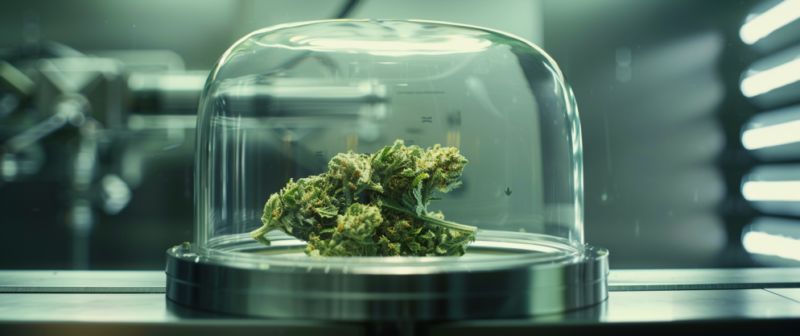Does Delta 8 improve mood
In recent years, Delta-8-tetrahydrocannabinol, commonly known as Delta-8 THC, has garnered significant attention for its potential benefits and unique properties. As a cannabinoid found in the cannabis plant, Delta-8 THC is closely related to its more well-known counterpart, Delta-9 THC, the primary psychoactive component of marijuana.
Have you heard of Delta 8 and its potential mood-boosting effects? This article discusses whether Delta 8 improves mood and the world of Delta 8, from what it is to how it affects the body.
Does Delta 8 improve mood? Find out more about whether Delta 8 can genuinely improve your mood.
What Is Delta 8?
Delta 8 is a chemical compound that belongs to the family of cannabinoids, which are naturally occurring substances found in the cannabis plant, including tetrahydrocannabinol (THC).
Part of what distinguishes Delta 8 from its more well-known cousin, THC, is its chemical structure. Delta 8-THC has a double bond on the 8th carbon chain, while THC has this bond on the 9th chain. This subtle difference leads to variations in how it interacts with the endocannabinoid system.
Originating from the hemp plant, Delta 8 can be derived by converting CBD into Delta 8. This compound has gained popularity for its milder psychoactive effects compared to traditional THC.
Legal status-wise, Delta 8’s position under the Agriculture Improvement Act 2018 is somewhat complicated. While it’s federally legal, some states have placed restrictions or outright bans on its sale and consumption, so it’s essential to be aware of local regulations regarding Delta 8 products.
Does Delta 8 Improve Mood
Whether Delta 8 improves mood has garnered significant attention from researchers and consumers alike. Various studies have investigated its impact on mental state and overall well-being.
Current research on Delta 8 and its effects on mood have shown promising results indicating its potential benefits for emotional well-being. Preliminary findings suggest that Delta 8 may positively affect mood regulation and stress relief, leading many individuals to find its use as a natural mood enhancer.
Consumer interest in Delta 8 products has surged in recent years, with many turning to it as a potential alternative for managing mood-related issues. Despite the growing popularity, experts emphasize the need for more comprehensive studies to truly understand how Delta 8 interacts with the brain and its long-term effects on mental health.
By examining scientific studies, anecdotal evidence, and expert opinions, we aim to provide a comprehensive overview of how Delta-8 THC might influence mood and contribute to overall well-being.
Scientific Research on Mood Enhancement
Research into the effects of Delta-8 THC on mood is still in its early stages, but initial findings are promising. A notable study published in 2004 in the journal Life Sciences studied the antiemetic (anti-nausea) properties of Delta-8 THC in pediatric illness patients. While the primary focus was nausea and vomiting, the researchers also observed a significant improvement in the patient’s overall mood and behavior, suggesting potential mood-enhancing properties.
In another study conducted by Raphael Mechoulam, a pioneering figure in cannabis research, Delta-8 THC was shown to have anxiolytic (stress-reducing) effects in animal models. This research, published in the European Journal of Pharmacology, indicated that Delta-8 THC could reduce stress levels without the potent psychoactive effects associated with Delta-9 THC, pointing to a more balanced cannabinoid that might improve mood without overwhelming psychoactivity.
A survey conducted by the journal Cannabis and Cannabinoid Research in 2021 found that a significant number of Delta-8 THC users reported mood enhancement and stress relief as primary benefits. These users described feeling more relaxed, uplifted, and less anxious after consuming Delta-8 THC, aligning with the findings from preclinical studies.
Expert Opinions
Experts in the field of cannabinoid research have begun to acknowledge the potential of Delta-8 THC as a mood enhancer. Dr. Peter Grinspoon, a primary care physician and cannabis specialist at Harvard Medical School, has noted that while more rigorous clinical trials are needed, the existing anecdotal and preclinical evidence suggests that Delta-8 THC could be beneficial for mood improvement and stress relief. Similarly, Dr. Ethan Russo, a neurologist and psychopharmacology researcher, has highlighted the importance of studying lesser-known cannabinoids like Delta-8 THC to fully understand their therapeutic potential and nuanced effects on mood and mental health.
Anecdotal Evidence
Consumer testimonials also play a crucial role in understanding the mood-enhancing effects of Delta-8 THC. Many users report feeling more relaxed, happy, and emotionally balanced after using Delta-8 THC products. These anecdotal accounts, while not scientifically rigorous, provide valuable insights into the everyday experiences of individuals using Delta-8 THC for mood enhancement.
What Are The Potential Uses Of Delta 8?
Delta-8 THC (tetrahydrocannabinol) has gained attention for its potential uses beyond medical applications, particularly in the world of recreational and wellness activities. Here are some possible uses of Delta-8 THC:
- Recreational Purposes: Delta-8 THC is valued by some individuals for its psychoactive effects, which are reported to be less intense than Delta-9 THC (the primary psychoactive compound in cannabis). This makes it potentially suitable for those seeking a milder cannabis experience.
- Relaxation and Stress Relief: Like other cannabinoids, Delta-8 THC may have relaxing properties that could help reduce stress and promote a sense of calmness. This could make it appealing for recreational users looking to unwind.
- Enhanced Creativity: Some users report that Delta-8 THC can enhance creativity and cognitive function in a way that is different from Delta-9 THC. This could interest artists, musicians, writers, and others in creative fields.
- Appetite Stimulation: Similar to Delta-9 THC, Delta-8 THC may also stimulate appetite, which could benefit individuals who struggle with poor appetite for various reasons.
- Potential for Focus: While Delta-9 THC is often associated with impairments in focus and concentration, Delta-8 THC may offer some users a clearer-headed experience, allowing for better focus while still experiencing mild euphoria.
- Alternative to Delta-9 THC: In regions where Delta-9 THC is heavily regulated or prohibited, Delta-8 THC could serve as a legal alternative that provides similar effects, albeit to a lesser extent.
- Use in Edibles and Other Products: Delta-8 THC can be incorporated into various cannabis products, including edibles, vape cartridges, tinctures, and topicals, expanding its usability and appeal among consumers.
What Are The Potential Risks Of Delta 8?
While Delta 8 offers several potential benefits, it is also essential to consider the possible risks, including impaired cognitive function, paranoia and stress, and the possibility of addiction.
Impairs Cognitive Function
One potential risk of Delta 8 is its ability to impair cognitive function, affecting brain processes such as memory and concentration.
Several studies have indicated that Delta 8 THC, like its cousin Delta 9 THC, can interfere with cognitive abilities. A review published in the Journal of Psychopharmacology highlighted that Delta 8 may lead to short-term memory impairment and reduced focus. Users have reported feeling mentally foggy and experiencing difficulty in retaining information while under the influence of Delta 8.
Experts in neuroscience caution that regular consumption of Delta 8 could have long-term consequences on cognitive function. While the impact on memory and concentration may vary among individuals, the overarching concern remains about the potential deleterious effects on brain health.
How Is Delta 8 Consumed?
Delta 8 can be consumed in various forms, including smoking, vaping, edibles, tinctures, and topical applications, each offering different benefits and experiences.
Smoking
Smoking Delta 8 is one of the most traditional methods of consumption, providing fast-acting effects due to the high potency of the cannabinoid.
The rapid onset of effects can be particularly beneficial for individuals seeking immediate relief. It’s essential to be aware of potential risks and side effects associated with smoking Delta 8. These may include irritation to the throat and lungs, coughing, and possible respiratory issues if smoked excessively or in an uncontrolled manner.
Vaping
Vaping Delta 8 is a popular alternative to smoking, offering a potent way to consume the cannabinoid without the harsh effects on the lungs.
Many individuals prefer vaping Delta 8 due to its convenience and discreet nature, making it easier to consume on the go without attracting unwanted attention. The effects of Delta 8 when vaped are known for their quick onset, providing users with a rapid sense of relaxation and relief.
Users must be mindful of Delta 8 products’ potency, which can vary significantly depending on the source and method of extraction. This variance in potency means that consumers need to dose their vaping sessions to avoid experiencing overwhelming effects carefully.
- While vaping Delta 8 may offer a more lung-friendly alternative to traditional smoking, users should still be aware of potential
- health implications associated with inhaling any substance, including concerns about potential long-term respiratory effects.
- Some individuals may also experience side effects such as dry mouth, dizziness, or increased heart rate, especially when consuming high doses.
Edibles
Edibles are a convenient and discreet way to consume Delta 8. The effects last longer due to the way the cannabinoid is metabolized in the body.
When you ingest an edible, it passes through your digestive system before entering your bloodstream, resulting in a slower onset of effects compared to smoking or vaping. This delayed reaction is often appreciated by users seeking a milder and more gradual experience. It’s crucial to note that the effects can vary significantly based on factors like metabolism, tolerance, and the specific product consumed.
Tinctures And Oils
Tinctures and oils are another popular method for consuming Delta 8. They offer flexibility in dosage and rapid absorption when taken sublingually.
Tinctures are highly concentrated extracts that usually come with a dropper for easy and accurate dosing. Conversely, oils can be ingested directly or added to food and beverages, allowing for a more versatile consumption method. One of the key benefits of using tinctures and oils is the discreet nature of consumption, making it convenient for those who prefer a more low-profile way of taking Delta 8.
Topical Applications
Topical applications of Delta 8 can provide localized relief, making them a popular choice for individuals looking to target specific areas of the body.
One key benefit of using Delta 8 topicals is their ability to deliver relief directly to the site of discomfort without affecting the entire body. Users often appreciate the convenience and ease of application with creams, balms, or patches infused with Delta 8. By bypassing the digestive system, these topicals can provide quicker relief for those seeking immediate comfort.
Is Delta 8 Legal?
The legal status of Full-Spectrum Delta 8 THC is complex and varies by region. Here are some key points to consider:
-
Federal Law in the United States:
- 2018 Farm Bill: The Agricultural Improvement Act of 2018, commonly known as the Farm Bill, legalized hemp and its derivatives, provided they contain less than 0.3% Delta 9 THC. Delta 8 THC can be derived from hemp, making it legal under federal law.
- DEA’s Stance: The Drug Enforcement Administration (DEA) has issued conflicting statements regarding Delta 8 THC. Some interpretations suggest that all synthetic cannabinoids are illegal, while others indicate that Delta 8 derived from hemp is legal. This ambiguity leaves Delta 8 in a gray area federally.
-
State Laws in the United States:
- Varied Regulations: States have different regulations regarding Delta 8 THC. Some states have explicitly banned it, while others allow its sale and use. The legal status can change rapidly, so it is important to check the specific laws in your state.
- Examples:
- Banned States: Some states that have prohibited Delta 8 THC include Alaska, Arizona, Colorado, Delaware, Idaho, Iowa, Mississippi, Montana, Rhode Island, and Utah.
- Legal Status: States like California, Florida, and Texas allow the sale and use of Delta 8 THC, subject to specific regulations.
-
International Law:
- The legality of Delta 8 THC varies widely around the world. In many countries, any form of THC is illegal. Others may have more lenient regulations regarding hemp-derived products but may not specifically address Delta 8 THC.
-
Regulatory Considerations:
- Testing and Quality Control: In regions where Delta 8 THC is legal, products are often subject to testing and quality control standards to ensure they do not exceed the legal limit of Delta 9 THC and are free from contaminants.
- Labeling and Packaging: Regulations may also govern how Delta 8 THC products are labeled and packaged, including child-resistant packaging and accurate ingredient lists.
-
Medical and Recreational Use:
- Some states or countries may allow Delta 8 THC for medical use with a prescription or recommendation from a healthcare provider.
- In places where recreational cannabis use is legal, Delta 8 THC may also be legally available alongside other cannabis products.
Final Thoughts – Does Delta 8 Improve Mood
While Delta 8 shows promise in improving mood and offering various other benefits, it is essential to consider the potential risks and the current state of research.
The limited research on Delta 8 makes it crucial to conduct more studies to understand its long-term impact on mental health. With comprehensive research, it is easier to determine the full scope of its effects and whether it could have adverse consequences over time.
Frequently Asked Questions
How does Delta 8 affect mood?
Delta 8 is a psychoactive compound that interacts with the endocannabinoid system in the body. This can potentially impact mood, but the exact mechanism is still unclear.
Are there any side effects of Delta 8 on mood?
There have been no reported side effects specifically related to mood when using Delta 8. However, as with any substance, individual reactions may vary and it is always recommended to start with a low dose and monitor your body’s response.
Can Delta 8 be used as a mood stabilizer?
There is no evidence to suggest that Delta 8 can be used as a mood stabilizer. It is important to note that Delta 8 is not FDA approved for any medical use and should not be used as a replacement for prescribed medication for mood disorders.
How long does it take for Delta 8 to improve mood?
The effects of Delta 8 can vary depending on the individual and the method of consumption. Some may experience mood improvements within minutes, while others may take longer for the effects to be felt. It is recommended to wait at least an hour before determining the full effects of Delta 8 on mood.
Is Delta 8 safe for improving mood?
Delta 8 is generally considered safe, but it is important to note that research on its effects is still limited. It is always recommended to consult with a healthcare professional before trying any new substance, especially for mood-related concerns.


